Prime Minister Justin Trudeau added his voice Friday to a chorus of international leaders who have condemned a deadly bomb and gun attack that killed at least 235 people and wounded more than 100 others in a crowded mosque in the Sinai Peninsula, in northern Egypt.
The attack, the deadliest ever by Islamic extremists in Egypt, targeted a mosque frequented by Sufis, members of Islam’s mystical branch, in the north Sinai town of Bir al-Abd. Islamic militants, including the local affiliate of the Islamic State group, consider Sufis heretics because of their less literal interpretations of the faith.
“I am shocked and horrified by today’s terrorist attack in the al-Rawda mosque in Bir-Al-Abed, which killed and injured hundreds of worshippers,” Trudeau said in a statement offering his condolences to the people of Egypt. “Canada condemns this attack and stands shoulder-to-shoulder with the people of Egypt in this difficult time.”
Canada strongly condemns today’s bombing of a mosque in Egypt. Our thoughts are with the victims & all those injured in this heinous attack.
— Justin Trudeau (@JustinTrudeau) November 24, 2017
Canada offers its full support to the Egyptian authorities and will continue to work closely with its allies and the international community to counter violent extremism that leads to such “appalling acts,” Trudeau said.
‘Evilness at its utmost level’
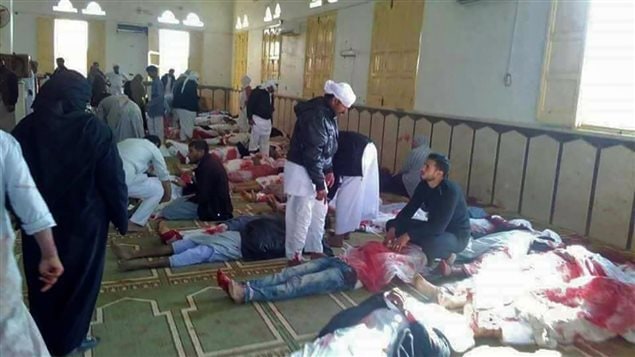
There was no immediate claim of responsibility but all signs pointed to the IS affiliate, which over the last three years has waged a bloody insurgency in the sparsely populated peninsula.
Seeking to spread the violence, the militants over the past year have carried out deadly bombings on churches in the capital, Cairo, and other cities, killing dozens of Christians. The affiliate also is believed to have been behind the 2016 downing of a Russian passenger jet that killed 226 people.
But this was the first major militant attack on a Muslim mosque, and it eclipsed any past attacks of its kind, even dating back to a previous Islamic militant insurgency in the 1990s.
“It’s a tragedy, it’s a horror more for the loss of human life – it can be Muslim or not Muslim, Sufi or not Sufi,” said Imam Omar Koné, a lecturer and Muslim congregation leader at the Masjid al-Iman Sufi Center in Montreal. “This is human evilness at its utmost level.”
Concern among Canadian Sufi Muslims
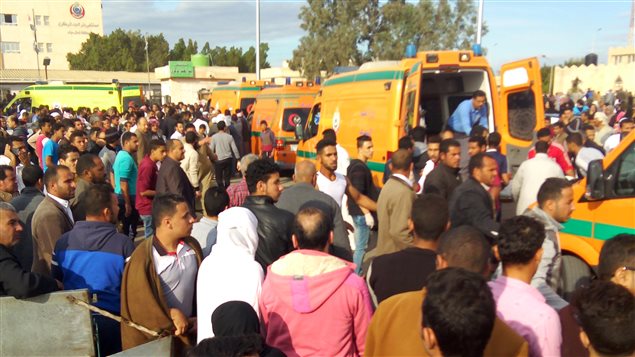
Koné said there is a lot of concern in his Montreal congregation.
“This is not the first time the Sufis are targeted by the Salafi entity and the Islamic State,” Koné told Radio Canada International. “They have killed a number of their leaders and their followers. And people are praying for the victims and joining their voices to the condolences to the families and the community, for Egypt.”
The militants opened fire from four off-road vehicles on the hundreds of worshippers attending the sermon in the mosque. They also blocked off escape routes from the area by blowing up cars and leaving the burning wrecks blocking the roads, three police officers on the scene told the Associated Press, speaking on condition of anonymity because they were not authorized to talk to the press.
“Islam teaches us to fight against all forms of evilness around us,” Koné said. “Unfortunately, these people rewrite the interpretation and they write under the evilness everything that is different from their thinking and their understanding of religion.”
Islamic State militants have targeted Sufis several times in the area in the past, notably beheading a leading Sufi religious figure, the blind sheikh Suleiman Abu Heraz, last year and posting photos of the killing online.
Call to fight Islamic State
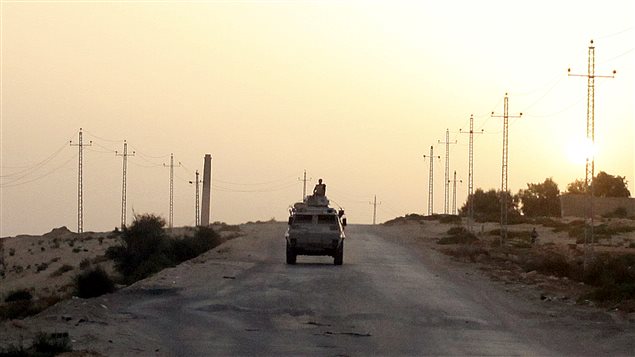
Koné called on all Muslim countries and Muslim scholars to condemn the attack.
“They have to stand up and declare that this is not an Islamic behaviour to kill innocent people no matter what their belief is,” Koné said.
The international community also has to be vigilant not to allow IS to set up presence in other countries, Koné said.
“The West has to be well-aware that these people, although they are losing Iraq and Syria, the groups are going to other places and they will keep on going,” Koné said. “So the effort has to be permanent in all lands where this ideology can go to be condemned, to be fought, but also to be fought through words and through understanding and through education.”
Attack ‘will not go unpunished’
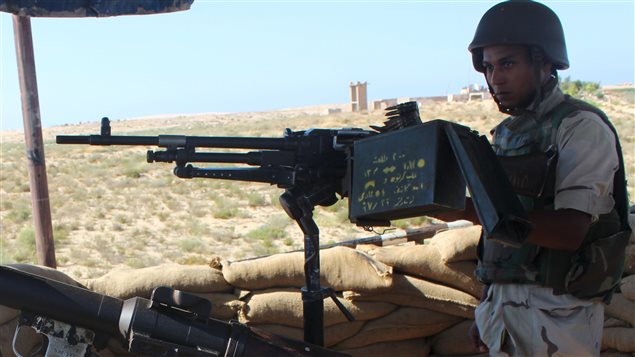
Egypt’s presidency declared a three-day mourning period, as President Abdel-Fattah el-Sissi convened a high-level meeting of security officials.
In a statement afterward, el-Sissi said the attack “will not go unpunished” and that Egypt will persevere with its war on terrorism.
The suffering of the victims was not in vain, he added, and will only “add to our insistence” to combat extremists.
Addressing the nation later on television, he repeated his view that Egypt fighting a battle against militancy on behalf of the rest of the world.
Cairo’s international airport boosted security following the attack, with more forces patrolling passenger halls, conducting searches and manning checkpoints at airport approaches.
State condolences poured in for Egypt, including messages from Israel, the United Arab Emirates, the U.S., Russia, France and Britain condemning the violence.
With files from The Associated Press
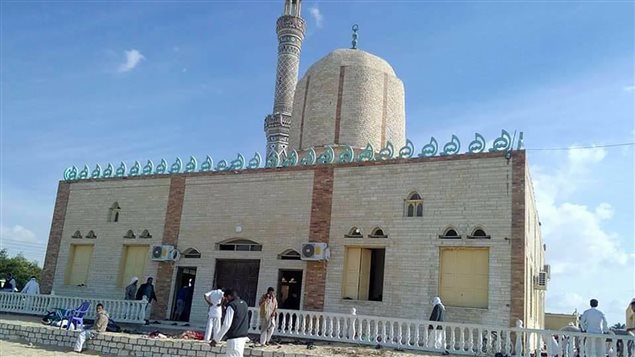






For reasons beyond our control, and for an undetermined period of time, our comment section is now closed. However, our social networks remain open to your contributions.